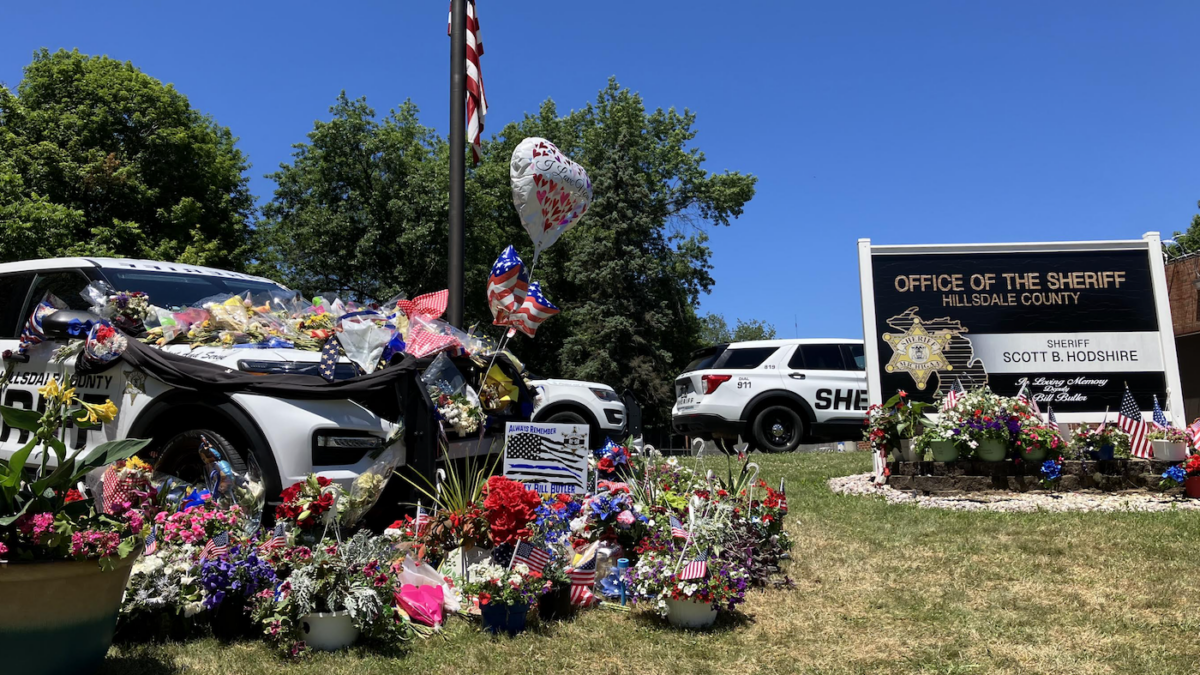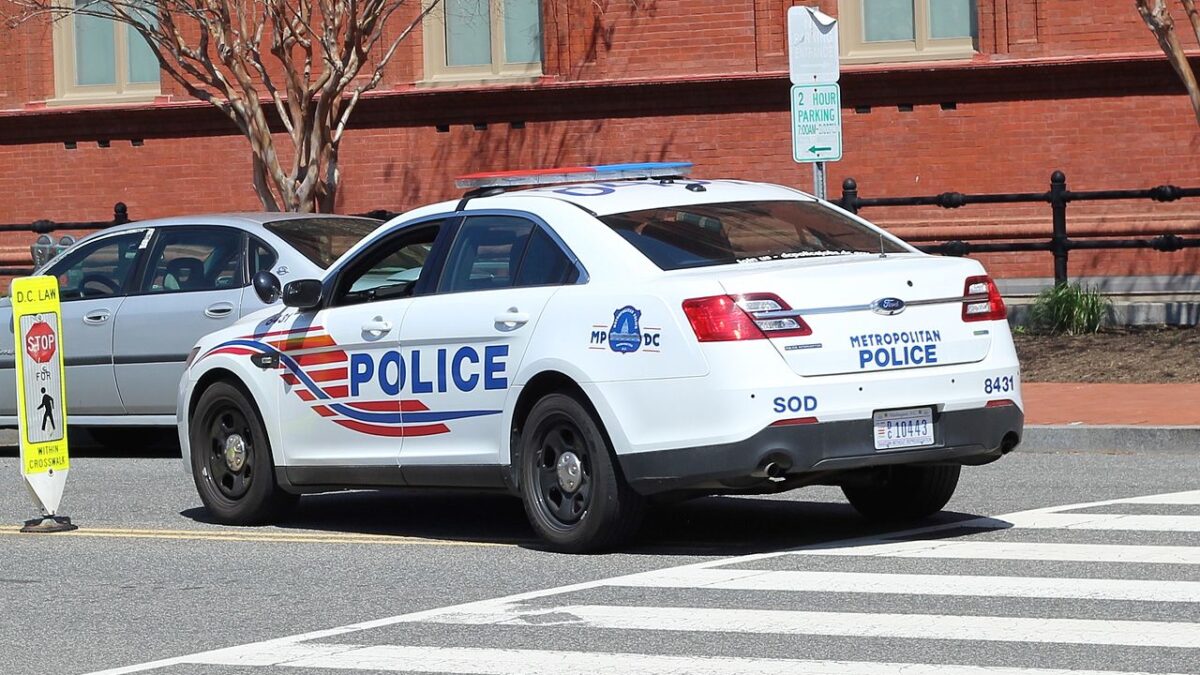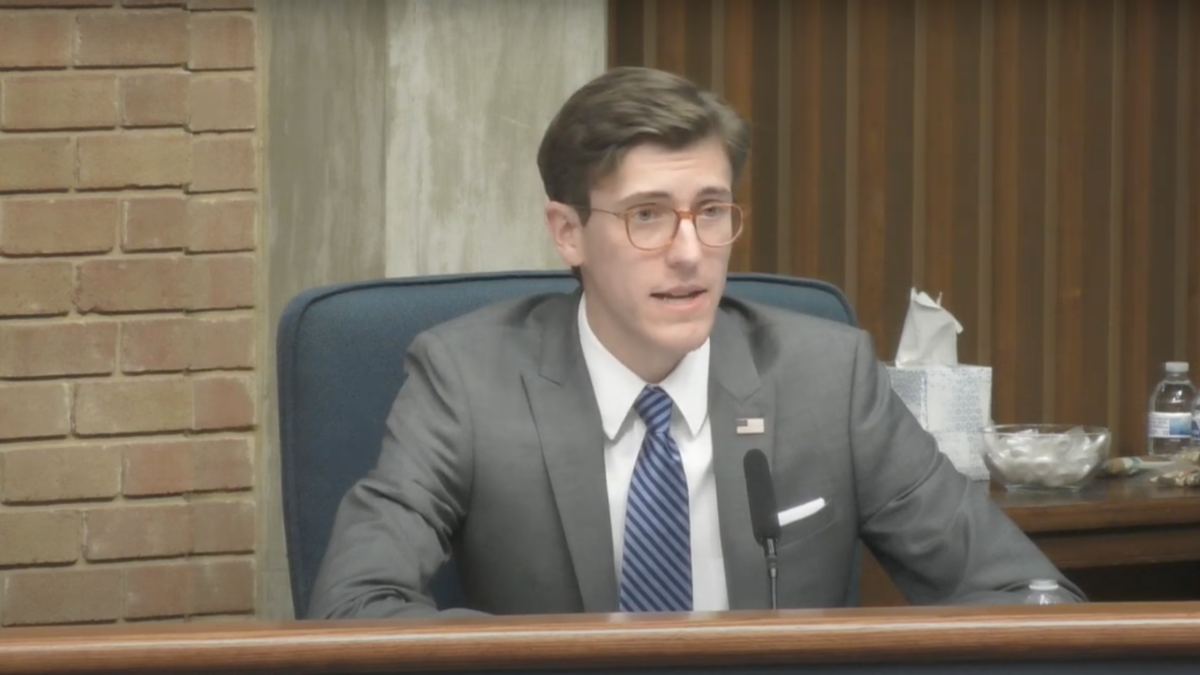HILLSDALE, Mich. — Cars lined the parking lot of the Hillsdale County Sheriff’s Office. Their occupants were mourning the death of Deputy William Butler, an Iraq War veteran and father of five.
Eric Fiddler, who allegedly shot and killed 51-year-old Butler during a traffic stop on June 27, went to jail twice in 2018 on reduced charges. He was wanted on a warrant for larceny at the time of the shooting, according to online records.
This sort of violence is almost foreign to the rural county, which reportedly last saw a police officer die in the line of duty in the 1930s. The crime shook the usually safe community, which is home to conservative Hillsdale College. Flags at businesses and homes across the county have been flying at half-mast since the news broke. It serves as a warning that small towns can still experience great violence.
The Traffic Stop
When a detective sergeant with the sheriff’s office pulled over a vehicle in the country outside the City of Hillsdale close to 2 p.m., Butler responded as backup, according to WILX. Deputies arrested the driver and recognized Fiddler, the passenger, who had warrants out for his arrest.
Deputies tried to arrest Fiddler and a fight broke out, according to ABC 13. Fiddler then allegedly drew a handgun and shot Butler, who was driven to a hospital but soon died of his injuries.
“Being a police officer is difficult because there are so many things out of your control,” said Hillsdale County Prosecutor Neal Brady.
Fiddler allegedly fled the scene, and officers from various agencies including the Michigan State Police, the FBI, and the Bureau of Alcohol, Tobacco, and Firearms tracked him for hours. MSP troopers found the 34-year-old suspect in a field close to 6:15 p.m., and when he reportedly fired at them, they immediately killed him in a gunfight. Brady said Fiddler likely had mental or drug issues, as is common in many violent criminals.
The Background
Fiddler has a long criminal history going back to 2013, according to WLNS, including several instances of his charges being reduced.
A deputy arrested Fiddler in February 2018 for the delivery or manufacture of controlled substances and a felony firearms charge. The drug charge, however, was reduced to the use of controlled substances, and the firearms charge was dismissed. Judge Sara Lisznyai of the Hillsdale 2B District Court sentenced Fiddler to a minimum of 30 days in the county jail and one year of probation.
Another deputy arrested Fiddler again just nine months later, in November 2018, for attempted “assaulting/resisting/obstructing” a police officer. Lisznyai set his bond at $2,500. The charge was reduced, and Lisznyai sentenced him to another minimum of 30 days in the county jail.
Prosecutors are still gathering police reports to examine why Fiddler was given reduced charges in his past arrests, Brady said. But he said charges in the initial case may have been reduced due to a technicality such as the quantity of drugs possessed, and charges in the second case may have been reduced due to a complication such as the arresting deputy being non-uniformed at the time.
Fiddler’s latest run-in with the law came in late 2023, when he was charged for larceny of at least $200 but less than $1,000, according to online records. Brady said Fiddler had stolen a welder from a friend. Deputies realized Fiddler was wanted on these charges when they tried to arrest him during the fatal traffic stop.
The Problem
It is unclear whether pressing higher charges in the past would have prevented this tragedy. But it is a reminder that letting repeat offenders slip through the cracks can become deadly.
While crime and sentencing complications are often considered a problem in cities such as Washington, D.C., the rest of America is not immune. In 2021, prosecutors released a suspect on a $1,000 bail five days before he sped through a Christmas parade in Waukesha, Wisconsin, killing six people and hurting dozens more.
Michigan state laws frown upon cash bail and dictate that it cannot be prohibitively high except in specific situations, meaning suspected criminals can get out of jail easily after an arrest. Brady said this has contributed to the local jail’s struggle to retain inmates. Deputies have also had to turn away suspects from the jail in the past due to the building’s small capacity.
Politicians often forget small communities, pushing policies irrelevant to their needs. This leaves rural America alone, struggling with tasks like criminal justice — and trying to cope with the sometimes deadly consequences.








